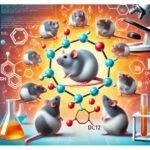Imagine a future where defeating cancer doesn’t rely solely on chemotherapy or radiation, but instead harnesses the power of our own immune cells.
This isn’t just science fiction; it’s becoming a reality thanks to groundbreaking research from Professor Lili Yang‘s team at UCLA.
In the world of cancer treatment, CAR-T cell therapy has been a beacon of hope. This therapy involves taking a patient’s own T cells, reprogramming them to attack cancer cells, and then reintroducing them into the patient’s body.
But there’s a catch: the process is expensive, time-consuming, and not always effective, especially if the patient’s T cells are already weakened by previous treatments.
Enter the hero of our story: AlloCAR-NKT cells. These are not your regular immune cells. They are a special type of cell called natural killer T (NKT) cells, which have been supercharged with a chimeric antigen receptor (CAR).
What makes them even more remarkable is that they are derived from healthy donor cells, making them an “off-the-shelf” solution that can be readily available for patients in need.
The journey of these AlloCAR-NKT cells begins in a lab where human stem cells are transformed into these mighty cancer fighters. Unlike traditional CAR-T cells, AlloCAR-NKT cells are designed to target multiple aspects of the cancer simultaneously, thanks to their ability to attack through three different mechanisms: CAR, TCR, and NK receptors. This triple-targeting strategy means they can recognize and destroy cancer cells more effectively.
Read also; How Curcumol Fights Brain Inflammation After Stroke?
In their experiments, Professor Yang’s team found that these AlloCAR-NKT cells could not only eliminate cancer cells in multiple myeloma, a type of blood cancer, but also significantly reduce the suppressive cells within the tumor environment that usually help the cancer hide from the immune system.
Moreover, these cells did not cause the severe side effects often seen with other immune therapies, such as graft-versus-host disease or cytokine release syndrome.
But the adventure doesn’t stop there. The researchers also demonstrated that these supercharged cells could persist and expand within the body, providing long-term protection against cancer recurrence.
This means that a single treatment with AlloCAR-NKT cells could potentially keep the cancer at bay for a long time, offering a new lease on life for patients.
The creation of AlloCAR-NKT cells by Professor Yang’s team represents a significant leap forward in cancer therapy. These cells offer a powerful, versatile, and safer option for fighting cancer, bringing us one step closer to a world where cancer can be effectively controlled or even cured by our own immune systems.


